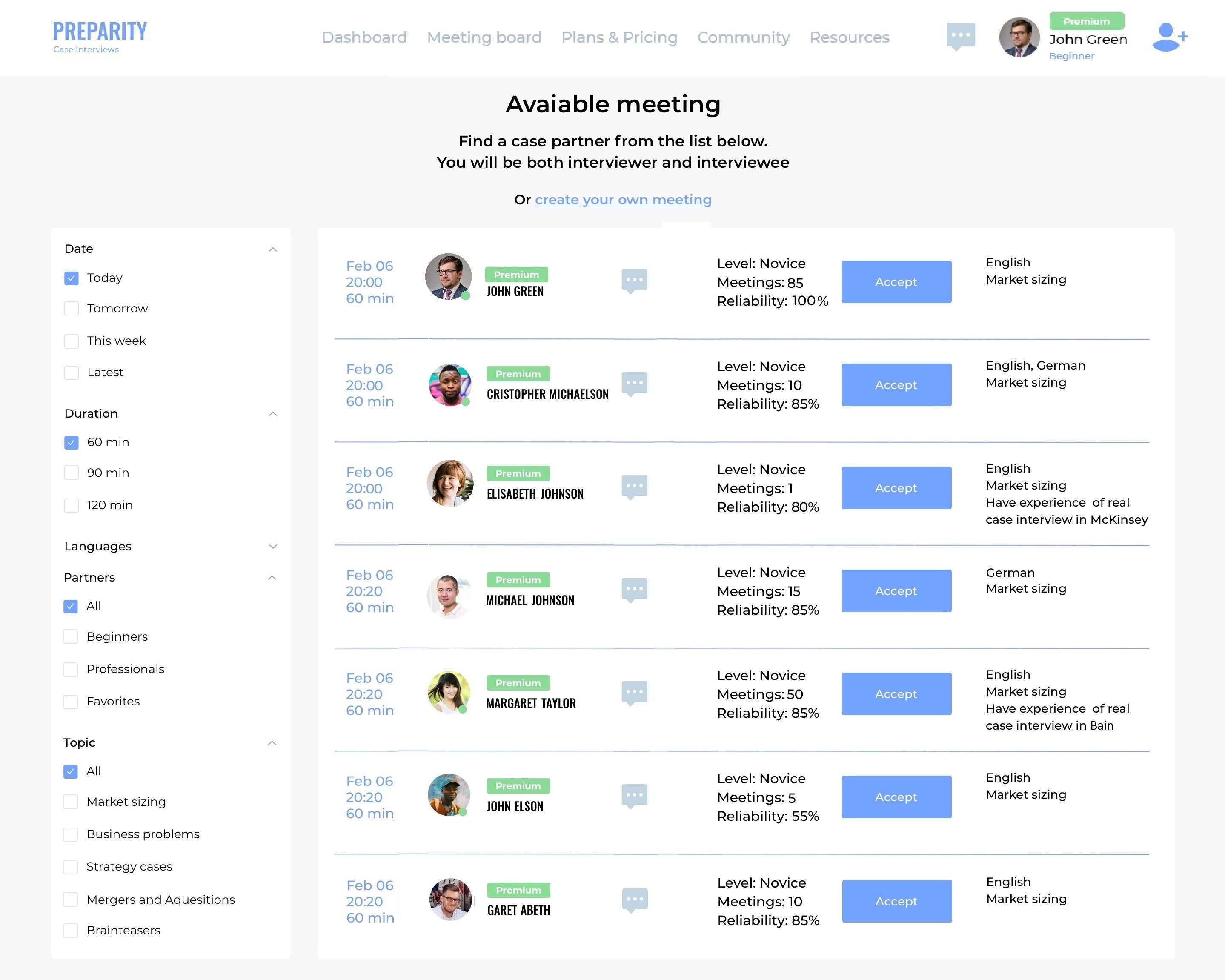
Whether you are looking for IT consultants to build your company's IT infrastructure, or you are a company in need of advice on your current systems, there are many factors to consider before hiring one. Learn more about the process of finding the best IT consultant, how to interview them and how CIOs and COOs can give recommendations.
Interviewing an IT Consultant
There are a number of benefits of interviewing an IT consultant before you hire him or her. These benefits include the ability to evaluate a candidate's skills and knowledge. The questions you ask will help you understand whether the consultant will be a good fit for your company and its goals. An interviewer can help you assess whether the candidate has an extensive knowledge of the industry. Interviewers are also able to inquire about the candidate’s interests and work experience.
Ask about the experience of an IT consultant and how they approach problem solving. Ask about the background of the candidate and what specializations they have worked in. Check to see if the portfolio is relevant to your needs.

The benefits of using an IT consultant
For businesses looking to enhance their data security and implement new technology, it can be a good idea to hire an IT consultant. Consultants can spot inefficiencies within business processes and recommend solutions to maximize productivity. They can also help you implement the right application. This will ensure that everything runs smoothly and gets done on time. A company that hires an IT consultant will help it avoid cyber attacks.
Consulting can often be more affordable than hiring full-time workers. In fact, a consultant with fifteen years of experience can work for the same salary as a junior employee. Consultants do not need to be paid full-time and are able to work around their schedules. Your business will reap the benefits of their vast experience and knowledge while also reducing risk and costs.
CIOs & CTOs: Recommendations
When you are looking for an IT consultant, there are some things you should know. For starters, don't just hire a consultant who knows all the latest tech. A good consultant should also be able to solve basic problems. A great consultant should also be comfortable communicating with process owners. He or she should be able and willing to challenge the status-quo.
Refer to references and review work history. Referees are an invaluable resource in the selection of a technical advisor. Using references is an excellent way to make sure the consultant is qualified and will be able to deliver on the project scope. Referees will also provide evidence of the technical consultant’s abilities and work ethic.

The cost of hiring an IT consultant
It is possible to save money and keep your business running smoothly by hiring an IT consultant. Outsourcing IT services can lower your office expenses, payroll taxes, as well as medical costs. It can also help to reduce the cost of software and hardware. Outsourced IT departments can also reduce costs for hardware and software, as well as office real estate and equipment. IT consultants are available to provide various services, depending upon your needs.
The hourly rate for an IT consultant will vary. The hourly rate for an IT consultant is anywhere from $1500 to $3500. This applies to a typical 12- to 14-hour day. The price of a project will vary depending on where it is located and how experienced the consultant is. Monthly rates, while hourly rates can fluctuate, are more predictable and guarantee that your consultant will be available whenever you need him.
FAQ
Do I need a degree to be a consultant?
The best way to become an expert on any subject is by studying the subject thoroughly and then practicing what you have learned.
If you are interested in becoming a great advisor, then start learning now!
Employers may be reluctant to hire people with a degree, but not the relevant experience. However, if you can demonstrate that you've studied the same subjects as those who got the jobs, you could still apply.
Employers will always be attracted to candidates who are able to apply their real-world skills.
Who hires consultants
Many organizations hire consultants to assist with projects. These include small businesses, large corporations, government agencies, non-profits, education institutions, and universities.
While some consultants work for these companies, others are freelancers. The hiring process for both cases varies depending upon the project's size and complexity.
When hiring consultants, you will probably go through several rounds of interviews before choosing the person you think would be best suited for the position.
How do I choose the right consultant?
There are three major factors you should consider:
-
Experience - How experienced is this consultant? Are they a beginner, intermediate, expert, or some other level? Do her qualifications and knowledge show on her resume?
-
Education – What did the person learn in school? Did he/she go on to further education after graduation? Do we see any evidence of this learning in the way he/she writes?
-
Personality – Do we like this person/person? Would we like him/her to work with us?
-
These questions can help you determine whether the consultant is right for your needs. If you do not have the answer, it is worth interviewing the candidate to find out more.
What should I expect from my consultant
You should hear back from your chosen consultant within a few days. They will often ask about your company's mission, goals and products. After receiving this information, they will prepare a proposal outlining their scope of work, estimated timeline, fees, deliverables and milestones.
If everything looks good, then the two parties will negotiate a written contract. The type of relationship between them (e.g. employer-employee or employer-independent contractor) will determine the terms of the contract.
If all goes well, the consultant will start working immediately. S/he will have access to your internal documents and resources, and you'll have access to his/her skills and knowledge.
You shouldn't assume, however, that every consultant is an expert in all areas. It takes effort and practice to become an expert in whatever field you consult. Don't expect your consultant know everything about your company.
Statistics
- So, if you help your clients increase their sales by 33%, then use a word like “revolution” instead of “increase.” (consultingsuccess.com)
- On average, your program increases the sales team's performance by 33%. (consultingsuccess.com)
- According to statistics from the ONS, the UK has around 300,000 consultants, of which around 63,000 professionals work as management consultants. (consultancy.uk)
- Over 62% of consultants were dissatisfied with their former jobs before starting their consulting business. (consultingsuccess.com)
- 67% of consultants start their consulting businesses after quitting their jobs, while 33% start while they're still at their jobs. (consultingsuccess.com)
External Links
How To
How To Start A Consultancy Company, And What Should I Do First?
Starting a Consulting Company is a great way to make money online from home. No prior business experience is required. It is possible to create a website to launch your consulting business. Once you've built a website, you'll want to use social media platforms such as Facebook, Twitter, LinkedIn, Instagram, Pinterest, YouTube, etc... to get the word out about your services.
With these tools, you can put together a marketing plan that includes things like:
-
Content creation (blogs).
-
Establishing connections (contacts)
-
Generating Leads (lead generation forms).
-
Selling products through ecommerce websites
Once your marketing strategy is developed, you need to find clients willing and able to pay for your services. Some prefer to connect with people through networking events. Others prefer to use online resources like Craigslist and Kijiji. Your choice is yours.
Once you have found clients, you should discuss terms and payment options. You can discuss hourly rates, retainer agreements, flat fees, and other options. Before you accept a client, you need to know what you expect so that you can communicate clearly all through the process.
An hourly agreement is the most common contract for a consulting service. This contract allows you to pay a fixed amount each week or month for certain services. You may be able negotiate discounts depending on what service you offer. Before you sign a contract, ensure you understand everything.
The next step is to create invoices and send them to your clients. Invoicing is one those things that seem so simple until you actually do it. There are many ways that you can invoice your clients depending on what your preferences are. Some prefer to send their invoices directly by email, while others prefer to print and mail hard copies. No matter what method you use, ensure it works for your business!
After creating invoices are complete, you will need to collect payments. PayPal is the most popular payment option because it's easy to use and provides multiple payment options. You can also use Square Cash, Square Cash (Google Wallet), Square Cash, Square Cash, Apple Pay and Venmo as payment processors.
Once you are ready to start collecting payments, it is time to open bank accounts. You can keep separate checking and savings accounts to track income as well as expenses. Setting up automatic transfers into your bank account is also helpful when paying bills.
It may seem overwhelming to start a consultancy, but once it is done correctly, it becomes second-nature. Check out this blog post for more information about starting a consultancy company.
The best way to make extra cash is to start a consulting business. Consultants can work remotely so they don't have the hassle of dealing with office politics and long working hours. Because you don't have to work a set number of hours per week, you can be more flexible than a traditional employee.